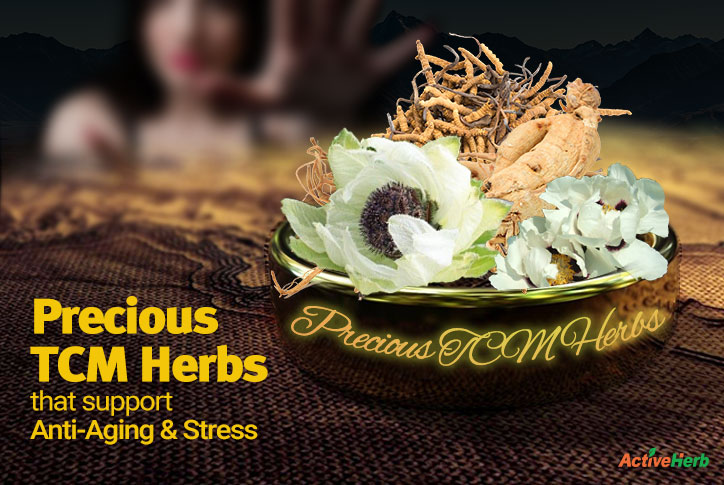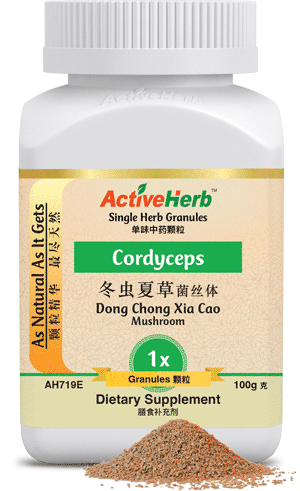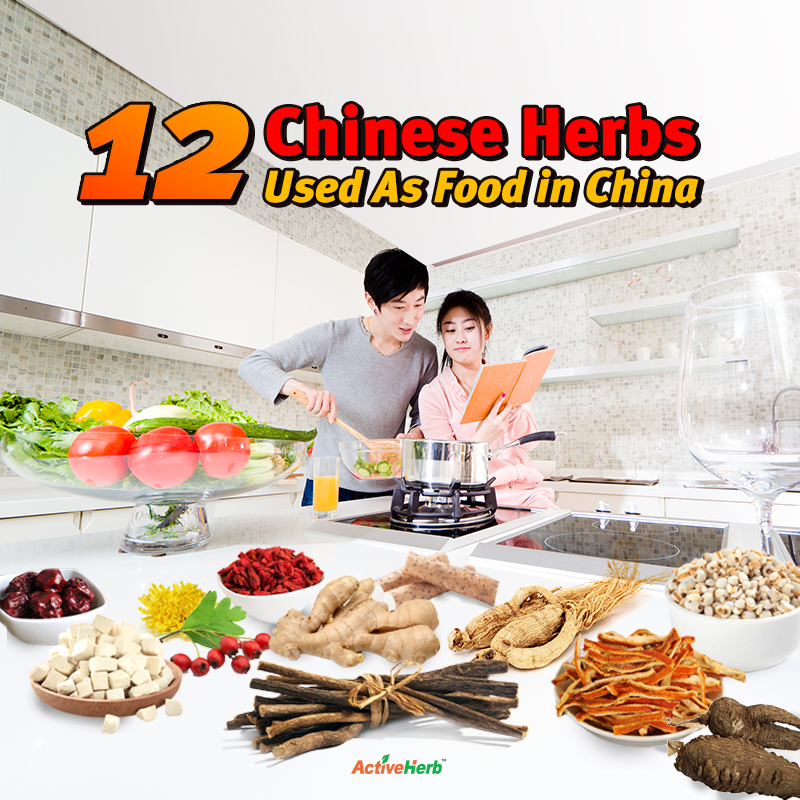These TCM Precious Herbs Support Anti-Aging & Stress

“My Precious! O my Precious!’ And with that, even as his eyes were lifted up to gloat on his prize, he stepped too far, toppled, wavered for a moment on the brink, and then with a shriek he fell.”
—J.R.R. Tolkien, The Lord of the Rings: The Return of the King
Gollum’s covetous desire to possess the magical ring led to his calamitous fall. Thankfully, if you’re trying to manage stress and defeat the aging process, you can be covetous of something else that’s precious: Precious herbs. Just watch your step while doing so because some TCM precious herbs grow at altitudes above 16,000 feet. Don’t pull off a Gollum!
What Are Precious Herbs in TCM?
Each year in the National Football League Draft, there are 256 picks. They are college football studs who will turn pro—if they make the cut with a pro team. But only the top few picks demonstrate exceptional talent and athleticism, those rare gems that can help patch a team’s weak spots. Maybe in the draft, there’s even a once-in-a-generation rarity. Similarly, out of approximately 600 common herbs in Traditional Chinese medicine, only a small percentage is considered top-rated or precious.
Precious herbs in TCM possess unique and effective qualities and don’t come to a dime a dozen. Although there’s no precise number of precious herbs, we can conservatively say that 50-60 TCM are precious. So out of the hundreds of Chinese herbs, roughly only 10% are revered like Gollum’s ‘My Precious.’
What Makes TCM Herbs Precious?
In the Lord of the Rings, The Ring’s primary power was domination of the wills of their users—and invisibility, which is a cool perk. Although the remaining non-precious herbs used in TCM are no slouches, precious herbs are thought to have extra-special therapeutic potential. But that’s not the only attribute of TCM precious herbs.
Rarity and Limited Growth Locations
Just as gold is a precious metal because there’s not much of it readily available, precious herbs are scarce. Furthermore, they are indigenous only to a speck on the map; their limited geographic distribution is mostly found in remote regions with climate and soil conditions that aren’t exactly top of bucket list dream vacation destinations. (If you visit places where precious herbs grow native, pack a jacket, nay, a parka!)
Because precious herbs are so limited in availability, they are highly sought after and valuable.
(The good news is that you don’t have to score precious herbs on the Black Market. Several are available at an affordable price—pennies per serving—at ActiveHerb. See details below.)
Standing at the base of a vertical wall, scouring the wild terrain for Snow Lotus (Saussurea involucrata), or “Xue Lian” would give Gollum a serious case of vertigo. Native to the high-altitude regions of the Himalayas, Xue Lian typically grows in rocky, alpine environments at altitudes between roughly 10,000 to 16,400 feet above sea level. Despite the extreme cold, high UV radiation, and low oxygen levels, Snow Lotus thrives here.
According to a 2019 study in Frontiers in Pharmacology, Snow Lotus accelerates blood circulation, resolves cold syndromes, and mitigates pain. The hardiness, rarity, and difficulty in cultivating and harvesting the herb make it one of the most sought-after and rare precious herbs in traditional Chinese medicine.
Not Your Grandma’s Goldenseal
Another precious herb that grows a relative stone’s throw from Xue Lian is Himalayan Goldenseal (Hydrastis canadensis var. canadensis), or “Shan Lian”. Goldenseal a precious herb? While you may be familiar with American goldenseal (Hydrastis canadensis), it’s not exactly the same as its Himalayan cousin. The turmeric-hued root-like rhizomes of Xue Lian are sought after for their potential anti-inflammatory and antibacterial properties. In a 2020 study in Pharmacological Research, goldenseal extract containing berberine “showed numerous therapeutic effects.”
Yet another precious herb that impossibly grows in breath-taking, oxygen-deprived Himalayan altitudes is Wild Rhubarb or “Da Huang“. Valued for its strong purgative and detoxifying properties, it’s used in formulas to rid the body of heat accumulation and abdominal discomfort.
Complex Precious Preparation Processes
Compared to more readily available TCM herbs, precious herbs often require intricate and time-consuming preparation methods to extract their therapeutic properties safely and effectively. These processes may include special drying, fermentation, or extraction techniques. The care and expertise needed to process these herbs contribute to their status as Gollum-worthy, aka “precious.”
Anti-Aging & Stress Adapting Actions of TCM Precious Herbs
If there’s an English equivalent phrase of ‘precious herbs in TCM’, it’s “adaptogenic herbs” or adaptogens. Adaptogen supplements have become a popular health trend in recent years because as the name implies, they may help the body adapt to stress. Not all precious herbs are adaptogens, but many are, which is why they have broad-ranging actions that may help the body become more resilient when facing chronic stress. And in doing so, precious herbs may help normalize organ function, which may prevent premature aging.
Now, then, let’s learn about more precious herbs in TCM.
Ginseng (Ren Shen)
The King of All Chinese herbs, Ginseng is a well-known adaptogen. It strengthens the body’s Qi (vital energy), improve vitality, support the immune system, and enhance physical and mental performance.
Purchase Ginseng extract granules and make instant hot tea. Or add to smoothies, yogurt or oatmeal.
—-> Learn more about Ginseng: The King of Chinese Herbs on the ActiveHerb Blog
Cordyceps (Dong Chong Xia Cao)
Cordyceps is revered for its ability to tonify the Lungs and Kidneys. It is often used to support respiratory health, increase endurance, and improve overall energy levels.
Buy Cordyceps Extract Granules
—-> Learn more about fascinating cordyceps here on the ActiveHerb blog. (Teaser: in the wild, cordyceps comes from a fungal parasite that grows on caterpillar larvae in the cold months.)
Reishi Mushroom (Ling Zhi)
Reishi is known for its calming and adaptogenic properties. It supports the immune system, reduces stress, and promotes relaxation. Reishi is often called the “Mushroom of Immortality” in TCM. Research is still evolving on reishi but the preliminary results are promising, suggests a 2021 article in Phytotherapy Research.
Your choice: Reishi extract granules for instant hot tea or Raw Bulk Herbs if you like to prepare TCM herbal tea the old-school way.
—-> Read “Reishi: The Immortal Herb with High Spiritual Potency” on the ActiveHerb Blog
Schisandra (Wu Wei Zi)
Schisandra is categorized as an astringent herb in TCM. It is used to stabilize the essence of the Kidneys, which is believed to support vitality. Schisandra is also known for its Liver-supporting properties and ability to support cognitive function. In addition, by calming the Heart system, Wu Wei Zi may soothe a restless, wandering Shen (spirit).
Try Schisandra Fruit Extract Granules … or cook it up on your own with raw bulk herb.
—-> Read how certain TCM herbs, such as Schisandra, support a more restful Sleep here.
Astragalus (Huang Qi)
Astragalus is a powerful Qi tonic for supporting the immune system and the Spleen for enhancing digestion.
A 2020 study in the Journal of Ethnopharmacology says Huang Qi is “A promising edible immunomodulatory herbal medicine.”
Add Huang Qi extract granules to hot water, coffee, smoothies or anything your belly desires. Prefer bulk herbs? We’ve got you covered.
—-> Read: Brew A Cup of Super Coffee With Astragalus & Other Precious TCM Herbs
Eucommia Bark (Du Zhong)
Need a Liver and Kidney organ system makeover for emotional and anti-aging support? Look no further to the precious herb that is Du Zhong. It is considered a valuable herb for strengthening the musculoskeletal system and is used for issues related to joints and bones. In addition, research shows it may support a normal fat metabolism.
Support your joints, tendons, ligaments, muscles and bones and a healthy aging process with 10X Concentrated Du Zhong Extract Granules.
Also available in bulk.
Gastrodia (Tian Ma):
Gastrodia, says this research study, “is used for a wide variety of applications.” We’ll narrow the scope of its actions by highlighting its ability to calm internal wind and relieve head discomfort.
Banish Wind and Harmonize your Liver Channel with Tian Ma Extract Granules, or if you prefer your Gastrodia Tuber whole, there’s this.
Adapt To Stress With TCM Precious Herbs
Wouldn’t it be nice if achieving perfect health were as easy as slipping a magical ring on your finger? Alas, we don’t live in a fantasy world. Thriving during these hectic times requires a healthy diet, daily exercise and movement, minimizing exposure to harmful chemicals, and, perhaps, a daily dose of precious TCM herbs.
You don’t have to take all 50 or so precious TCM herbs to support your health. Simply just try one or two at a time. Hopefully, after a few weeks of daily usage, you’ll look at the bottle and say, “My Precious!”







